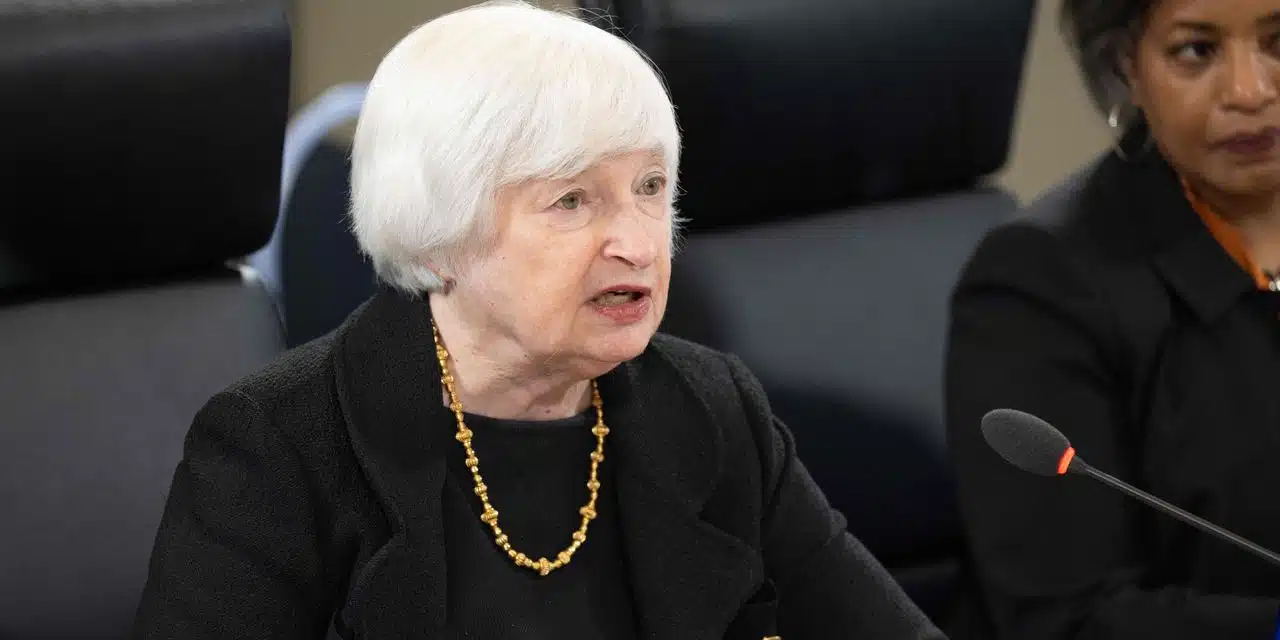U.S. Treasury Secretary Janet Yellen has issued a warning that the United States could potentially breach its debt ceiling by June 1 if Congress does not act quickly to raise the nation’s borrowing limit. This comes as a result of Yellen’s review of recent federal tax receipts, and she has urged House Speaker Kevin McCarthy and other bipartisan leaders to address the situation immediately. This situation puts enormous strain on the U.S. financial system and the global economy, as the U.S. is forced to take on more debt to meet its obligations.
The debt ceiling is a limit imposed by Congress on how much debt the federal government can accumulate. It was first implemented as a part of the Second Liberty Bond Act during World War I, and its main purpose is to prevent the government from taking on too much debt. Over the years, the ceiling has been adjusted numerous times, most recently in 2019 when it was suspended until July 31, 2021.
Yellen’s warning comes as no surprise, as the U.S. has been facing a mounting debt crisis for several years now. The federal debt has more than doubled in the past decade, fueled by large budget deficits and increased spending on entitlement programs such as Social Security, Medicare, and Medicaid, as well as emergency spending measures enacted during the COVID-19 pandemic. The Congressional Budget Office (CBO) projects that the U.S. debt will exceed the size of the entire economy by 2021, reaching 102% of GDP.
If Congress does not act quickly to raise the debt ceiling by June 1, the U.S. government may have no choice but to resort to “extraordinary measures” to ensure that it can continue to meet its obligations. These measures may include suspending certain investments in federal employee retirement funds, temporarily freezing the issuance of new debt, and postponing certain payments to government agencies and programs. While these measures have been employed in the past, they are considered to be a stopgap solution and can only buy a limited amount of time, ultimately leading to uncertainty and potential damage to the U.S. economy.
Failure to raise or suspend the debt ceiling on time could result in a U.S. debt default, which would have severe consequences for the American economy and the global financial system. In the event of a default, the U.S. Treasury would be unable to pay interest on existing federal debt, leading to a decline in investor confidence and a potential sharp increase in interest rates. This could trigger a chain reaction of financial turmoil, including a sudden drop in the value of the U.S. dollar, higher inflation, and increased borrowing costs. The ripple effects of a U.S. debt default would likely be felt around the world, as other countries hold significant amounts of U.S. debt and may also see their credit ratings affected.
To avoid such a disastrous scenario, it is crucial for Congress to act swiftly to either raise or suspend the debt ceiling. This would allow the federal government to continue borrowing to meet its obligations and prevent a possible default. However, raising the debt ceiling is never a painless process, as lawmakers from both the Republican and Democratic parties often use the opportunity to push for either spending cuts or tax increases to address the nation’s fiscal problems.
Despite the challenges posed by the debt ceiling debate, there is hope that bipartisan cooperation will prevail in the face of the pressing need to prevent a default. In the past, Congress has acted several times to avert a looming crisis, albeit sometimes at the last minute.
Resolving the debt ceiling issue is not only critical for avoiding an immediate default, but also for addressing the underlying problem of the ballooning U.S. national debt. The country’s fiscal health depends on balancing the budget and reducing the debt-to-GDP ratio in the long run, which will require difficult decisions on spending and revenue.
Ultimately, raising or suspending the debt ceiling is a necessary step to ensure the U.S. can continue to function financially and meet its obligations. Congress must act quickly to avert a potential crisis and work towards addressing the nation’s debt problem to ensure long-term economic stability.


